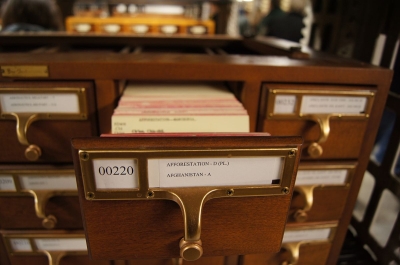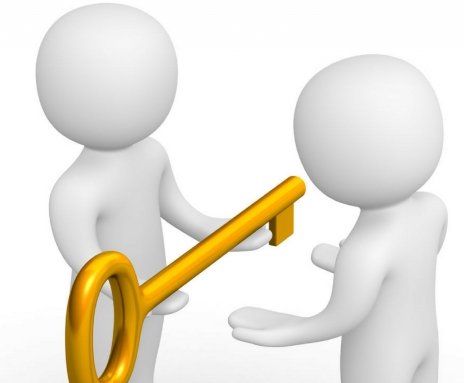Whenever I mention Steemit or bitcoin, I either get a blank stare or get asked to explain what blockchain is. I usually respond with an analogy like this:
Back on the day when we used to borrow paper books from a library, they recorded who had the book on a card. When you returned the book, they recorded that on the card and someone else could borrow the book.
Imagine if that "card" was on the internet. Instead of returning the book, you could give the book to the next borrower without going to the library and, when you both agree that had been done, you update the card yourselves.
The problem with that system would be security. But that can be fixed in two ways:
- the card could be encrypted, so that only those involved in the transaction can change it.
- the card could be duplicated hundreds or thousands of time, for example giving everyone who used the library a copy. Then, any fraudster would have to somehow change thousands of cards.
A system like that is called a "distributed ledger" and because the information is recorded in blocks as the chain of transactions occurs, it is also called a "blockchain".
People deal directly with each other in their community. There is no need for a "trusted third party" like a library, a lawyer or a bank.
A response that I often get is "Yes, I like any system that gets rids of lawyers and banks - but you don't own the book, the library does". That got me thinking about how "ownership" is changing and how the blockchain is part of this.
For example:
- When we buy digital items - an ebook from Amazon, music from iTunes of software from Microsoft - we don't actually get to own the item in the traditional sense. What actually happens is we enter into a contract - too long and complicated for anyone to read - that basically says that we have a right to the item but we can't duplicate and distribute it.
- Many of us don't really own our smartphones. We have a contract with a service provider which gives us a right to have the phone but we have to use that provider.
- More and more of us live in apartments. Buying an apartment is not like buying a block of land in the countryside where you can do whatever you want. We are actually entering into a contract which gives us a right to use the airspace within the apartment with certain restrictions.
- Advocates of self-driving cars are suggesting that individuals won't own the cars but will hire them for each journey.
How can we efficiently record all of these constantly changing "rights"? The obvious answer is on blockchains.
I'm not suggesting that the blockchain is producing these changes in ownership - but it certainly is a technology that will facilitate it.
Let's talk about it.
image credits:
"Library of Congress USA 5466788868 card catalog" by tedeytan via Wikimedia Commons
"Ownership" by Clipart Panda

